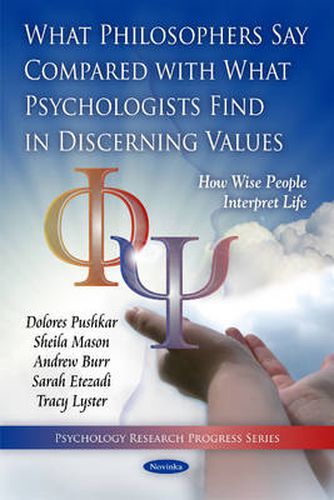Readings Newsletter
Become a Readings Member to make your shopping experience even easier.
Sign in or sign up for free!
You’re not far away from qualifying for FREE standard shipping within Australia
You’ve qualified for FREE standard shipping within Australia
The cart is loading…






Psychologists and philosophers have both asked a fundamental question about the human experience – what is the best way to live – but have employed different methods of inquiry. Psychological research into this question has taken the form of empirical investigations in three main domains: (1) how wise and competent people live their lives; (2) the values that are embodied in the actions of wise people; and (3) the psychological benefits that come from following different values. Philosophical methods of inquiry, based on appeals to lived experience as presented anecdotally, through literature, and through analysis at the conceptual level, provide complementary ways of understanding wisdom and the values embedded therein. This chapter provides an integrative review combining empirical research related to wisdom and its inherent values with an analysis of wisdom and values from the philosophical tradition with a focus on Aristotelian virtue theory. The content includes both reviews of relevant literature and results from original data sets, illustrates the values inherent in both the psychological and philosophical approaches, and highlights the commonalities as well as current differences between these two methods of inquiry.
$9.00 standard shipping within Australia
FREE standard shipping within Australia for orders over $100.00
Express & International shipping calculated at checkout
Psychologists and philosophers have both asked a fundamental question about the human experience – what is the best way to live – but have employed different methods of inquiry. Psychological research into this question has taken the form of empirical investigations in three main domains: (1) how wise and competent people live their lives; (2) the values that are embodied in the actions of wise people; and (3) the psychological benefits that come from following different values. Philosophical methods of inquiry, based on appeals to lived experience as presented anecdotally, through literature, and through analysis at the conceptual level, provide complementary ways of understanding wisdom and the values embedded therein. This chapter provides an integrative review combining empirical research related to wisdom and its inherent values with an analysis of wisdom and values from the philosophical tradition with a focus on Aristotelian virtue theory. The content includes both reviews of relevant literature and results from original data sets, illustrates the values inherent in both the psychological and philosophical approaches, and highlights the commonalities as well as current differences between these two methods of inquiry.